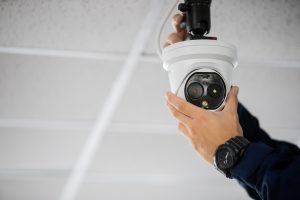How we can watch TV has exploded over the last few years. Sometimes it is so confusing as to what you should use for your home viewing, Satellite TV or cable. We have taken an overview on both to help you make the right choice to have the programmes you want to watch. If you have more questions about your TV options, give us a call at TV Local, we are here to help you.
Pros & Cons Of Cable TV
BT and Virgin Media currently offer cable services. To use cable, you must have a service with one or the other. Cable TV operates from fibre optic cables—on the ground—to deliver your TV signal. There are several advantages to cable TV. One of the most attractive is the number of channels available to watch. Cable fibre optics can handle over 280 channels covering all genres, movies, sports and entertainment. So when the mood hits you for a binge-watching session, whether it is movies, documentaries or TV boxsets, cable TV offers a great choice for on-demand TV.
Using cable TV means paying a subscription to the service provider. This means you must sign a minimum of a year’s contract. Always check what is included in the subscription, as they can be costly, and you could end up paying out for programmes you don’t watch. Another downside of cable TV is its availability. Only around 50% of the UK can get cable. However, some specialist cable companies are providing in un-cabled areas.
Pros & Cons Of Satellite TV
To receive satellite TV, you need a dish attached to your home to receive TV broadcasts. The sky is one of the popular satellite TV providers, where you pay a monthly fee for its use. You can also use your satellite dish to receive Freesat TV. To do this, you will have to purchase a Freesat receiver.
Installing a dish opens access to many viewing channels, including exclusive Sky channels like Sky Atlantic. Another plus is that many of them are in HD, but Sky can be expensive. However, a satellite dish gives you service all across the UK. Some areas can have intermittent problems receiving programmes due to the rare occurrence of certain atmospheric conditions.
Freesat’s subscription-free service only needs you to purchase the receiver. Freesat delivers more channels than Freeview and on-demand services like the BBC iPlayer.
One disadvantage is installing a satellite dish on rented property and flats. Most landlords are usually agreeable but don’t forget to ask! The widest choice of channels comes with a Sky subscription. Cost is determined by which TV package you sign up for.
TV Local – For The Most Up-To-Date Info For Your Area
If you are still unsure which option suits you best, call us. We can help you with more detailed information on both options. Our installation experts—all qualified to work at heights—know how to place a satellite in just the right place, somewhere it is functional and discrete. We can also install foreign satellites for those customers who would like access to TV programmes from their own country.





